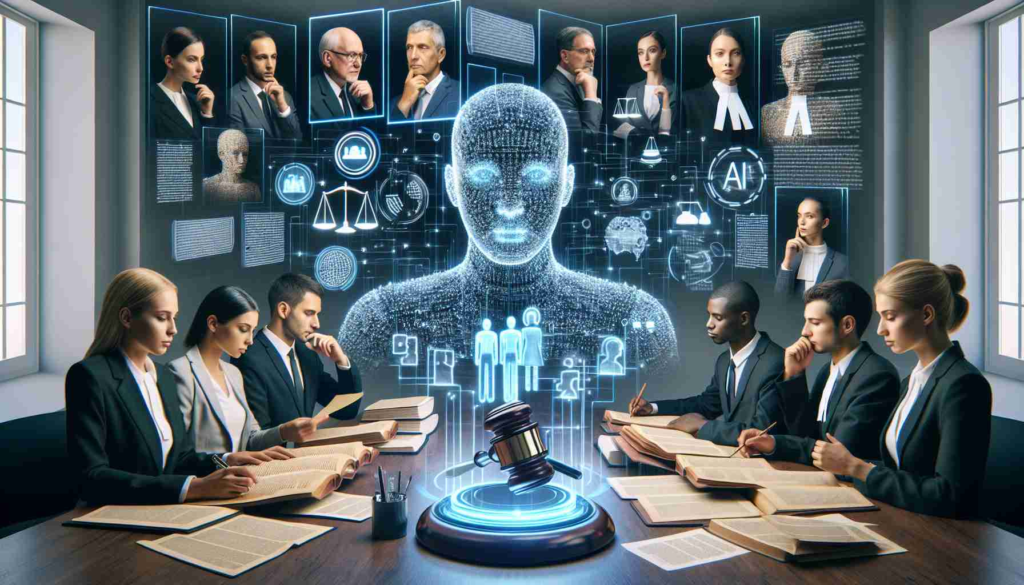Not a Replacement but a Tool for Lawyers


Despite the buzz around artificial intelligence (AI) transforming industries, including the legal sector, practitioners are finding that AI’s integration into law remains supplementary rather than revolutionary. Lawyers are experimenting with new AI tools designed to optimize the legal practice; some are beneficial, particularly for tedious tasks like suggesting document revisions or analyzing lengthy texts. However, professionals in the field often encounter limitations in AI’s understanding of nuanced legal negotiations and practical application to real-world scenarios.
From suggesting implausible deal terms to recommending nonsensical edits, AI still demonstrates a lack of the critical judgment and contextual awareness integral to legal work. Trusting AI’s output without thorough review can result in wasted effort, as experienced by those in the legal profession who often find themselves rejecting AI’s misguided contributions. Thus, despite being resourceful, most AI applications do not replace the multifaceted nature of legal work but serve to enhance the capabilities of lawyers.
The legal sector’s adaptability is evidenced by its evolution over the years. In the past, many lawyers found themselves out of work when technology rendered certain roles obsolete, such as document reviewers displaced by predictive coding. Yet, the profession found ways to integrate these individuals into new roles, suggesting a resilience that may absorb AI’s impact over time.
While AI offers promising tools that could improve efficiency, the consensus among legal professionals is that the disruption to their craft by AI will be gradual, allowing for adaptation and learning how to best leverage AI for enhanced legal services. It’s a reminder to stay informed about technological advancements but not to anticipate a sudden overhaul of the legal profession by artificial intelligence.
AI Integration into the Legal Industry
The legal industry stands at an interesting juncture with the slow yet steady infiltration of artificial intelligence (AI) into various aspects of its operations. While the influence of AI in law has been more augmentative than transformative, it presents a unique set of opportunities and challenges within the sector. By automating routine tasks, AI tools allow lawyers to focus on more complex, value-added aspects of legal work. For example, tools that suggest document revisions and analyze lengthy texts have proven useful, especially for reducing the workload involved in due diligence during mergers and acquisitions, litigation discovery, and contract analysis.
However, despite the utility of AI in these contexts, the industry is faced with significant limitations. AI systems often struggle with the interpretation of complex legal language, the subtleties of negotiation, and providing context-aware suggestions. These shortcomings underline the critical need for human oversight in ensuring the appropriateness and precision of legal guidance.
Market Forecasts for the Legal AI Industry
The market for AI in the legal industry has been growing, with forecasts suggesting continued expansion. Analysts predict that as the technology matures and becomes more integrated into daily practices, its adoption will increase. Law firms and corporate legal departments are expected to invest more significantly in AI technologies to enhance efficiency, reduce costs, and maintain competitive advantages.
Issues and Adaptability in the Legal Sector
The adaptability of the legal profession is a cornerstone of its sustainability in the face of technological change. Industry adaptability is reflected in how legal professionals have historically transitioned into new roles following technological disruptions. The sector’s resilience is expected to continue as AI becomes more prevalent, with legal professionals learning to leverage new tools to deliver enhanced legal services.
Indeed, the future of AI in law is anticipated to be one of partnership between humans and technology, where AI’s capabilities are melded with the nuanced expertise of legal professionals.
Linking to Further Information
For those interested in the broader implications of AI’s influence on industry and commerce, additional information can be found through the following valid link: IBM. They offer insights into AI technologies, industry applications, and the business landscape’s future in a world increasingly shaped by artificial intelligence.
To conclude, while the integration of AI into the legal profession is ongoing, it remains a complementary component rather than a replacement for human expertise. As AI technologies advance and legal professionals become more adept at employing AI tools, the legal industry is poised to harness the power of AI while maintaining the critical human judgment necessary for the practice of law. The expectation is not a sudden upheaval but a gradual and beneficial technology integration that enhances the legal services industry.

Marcin Frąckiewicz is a renowned author and blogger, specializing in satellite communication and artificial intelligence. His insightful articles delve into the intricacies of these fields, offering readers a deep understanding of complex technological concepts. His work is known for its clarity and thoroughness.



